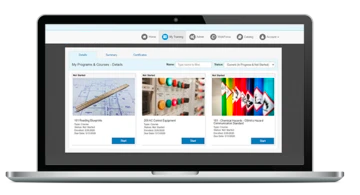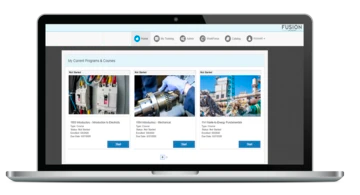Simulations aren’t just for those working in aerospace, defense, and medicine. They’re also an excellent tool for upskilling your maintenance and technical workforce, training them to complete repairs faster and more accurately with fewer wasted replacement parts.
With simulations, your team will explore a virtual environment where they can practice troubleshooting common faults, using the tools and components they’re already familiar with. TPC Simulations calculates the costs associated with replacement parts, including the time to replace them. As learners practice within these simulation modules, they’ll see the current, approximate costs they’ve incurred while working on the repair.
In addition to honing repair skills, your team will gain a firmer grasp of troubleshooting theory – the way to optimize the repair and part replacement process. For those not ready to try their hands at troubleshooting, they can familiarize themselves with the modules in explore mode first. With explore mode, users can examine the properly operating system in action and take baseline readings to use when they’re working on fault recovery.
Within TPC Simulations, learners gain practice using common tools and resources:
- Wiring diagrams
- Schematics
- User manuals
- Multimeter – voltage & resistance
- Screwdrivers
- Lock & tag
- Computer for live view of PLC program
They practice troubleshooting components and processes such as:
- Fuses, relays, pushbuttons, lights, and wiring.
- Control circuits
- Relay logic
- Transformers
- Solenoids
- Proximity switches
- 3-phase motor
- Overload relays
- Limit switches and safety switches
- PLC ladder logic
- PLC sequential logic
- PLC process control
- VFD
- Environmental sensors
Each simulation module contains dozens of fault scenarios that progress as learners improve their skills. Beginning with the simplest faults, learners can work up to expert-level faults within the same environments.
TPC Simulations offer training that is scalable, consistent, and repeatable.
— Jess Schmidt






Comments
Sorry, no comments found for this article